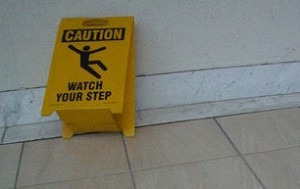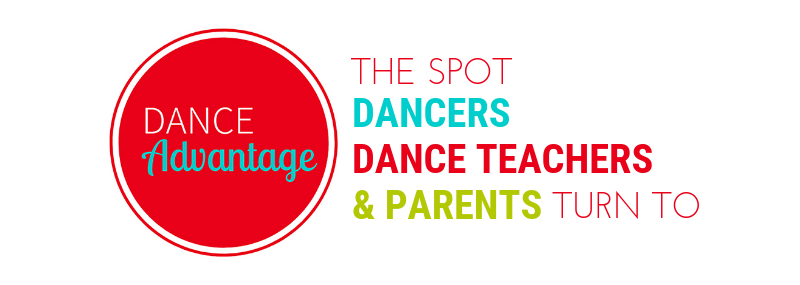Have you received an email that reads like this?
This is ______.I am from ________,my daughter will be coming for an holiday in the United State.I need dance lessons for my child for just a month, i got your advert while surfing through the internet and i really want my child to be taught by you. _____is just a little child and easily catch up.If this is possible,i will want you to get back to me with the cost of your teaching private lesson for two weeks. Looking forward to you correspondence.
Many of you may already be aware of this common scam that targets instructors. However, I’ve seen recent questions from teachers all over the Net regarding e-mails that they’ve received asking for lessons or private tutoring. So, this post is dedicated to increasing your awareness in three areas:
- How to spot a scam
- What to do when you receive an email like the above
- How to protect yourself from email spam and scams
How to Spot a Scam
-

Photo by Kenneth Lu The English grammar/punctuation is very poor.
- General titles are used instead of your name
- Your business or what you do is not mentioned specifically (dance lessons or private lessons instead of your specialty or something you’ve advertised)
- The message claims an urgency or is trying to appeal to your compassionate nature
- The pupil is said to be inexperienced but a quick study
- The request seems outlandish – daily lessons for three straight weeks, for example.
- There are inconsistencies such as claims of living in the U.K. or U.S. when the writing does not reflect this, or their own name is oddly spelled or stands out as unusual
- Mentions strange travel, living, or boarding arrangements
- Your email address is not listed as the intended recipient (TO:) yet mysteriously appears in your inbox anyway. If you do not automatically see the to: and from: fields in your message, most email services will have an area you can click to expand the header.
Keep in mind that the initial email may not mention anything to do with money or even say much at all. Those that run this scam depend on you to believe that the interaction is legitimate. They often make contact first but money will always enter the picture once you’ve responded to their inquiry.
Trust your instincts. If something seems odd or suspicious, it probably is!
What to do next
If you are pretty certain that the e-mail you have received is a scam…
- Don’t reply.
- Report it.
- Forward it to the Federal Trade Commission at uce@ftc.gov
- Inform the e-mail service from which the message was sent. Most scammers will use free services like gmail, yahoo, hotmail, etc. You can report a violation to Google/Gmail here. If you are unsure where to report others try searching for report, scam, email, yahoo (for example).

If you think it may be legitimate but are unsure…
Proceed with caution. Some scammers are craftier than others. The message may read like a typical inquiry about the price of your lessons.
Ask questions without divulging more information than necessary. Where are you located? What type of lesson or style are you interested in? (you want to see if the con artist will slip up, display discrepancies in their story, or mention odd terms or conditions regarding money)
Continue to check their FROM: address. Scam perpetrators often send from different email addresses to make it harder to track their activities.
Never accept a check or wire of money from someone you don’t know. This scam usually involves a faked check, money order, or even gift card/certificate which is larger than the amount agreed upon. You will be asked to return the difference from your account.
How to protect yourself from email spam and scams
-

Photo by DWRose Don’t open attachments from people you don’t know.
- Only open attachments from people you do know if they’ve told you it was coming and explained what they’re sending. Ask them about it if they haven’t.
- Don’t click on a link in any email without hovering over the link first (the destination url will appear at the bottom of your browser). Do the url’s match or make sense? Always be cautious if they don’t – even if you know the sender. If you don’t know the sender – don’t click at all!
- Do not assume that the email is legitimate just because it shows that it is from someone you know. Treat all emails with caution – think before you click!
- Think before you publish your address online – including on your own website. Consider displaying your address as an image instead. Use a contact form (your address is not revealed, though it is likely you will still receive comment spam – delete these messages when you receive them). You might try writing your address in a different way if you can (people used the [NO SPAM] insertion for a while), however spam bots are getting smarter so try something unique.
- Use multiple addresses. One for family or friends. Another for online transactions. Another for newsletter signups… you get the idea.
- Do not pass on chain e-mails. Not only do they junk up cyberspace, but in forwarding them you often make your email address accessible to people you don’t know. I like the following reminder from wiredsafety.org:
No chain e-mails are legitimate, credible companies do not conduct their marketing in such a haphazard fashion. Chain e-mails cannot bring you fortune or cause bad luck, they will not make you rich and you will never get that luxury holiday. They are lies, at best mischievous at worst (like virus hoaxes) designed to cause worry and disruption. Finally, if you truly want to help disadvantaged children, endangered species or support another charity or movement, go to their Web site[s] and make a donation or sign up as a volunteer. You can use a search engine to find them, it takes about the same amount of time and effort to run a search as it does to forward a questionable e-mail. If you really want to tell a friend or loved one that you care about them, don’t do it with a junk e-mail that has been repeatedly forwarded. Tell them yourself, write a personal note – from your heart or, even better, tell them face to face.
Want some more Internet safety tips?
There are many places online that will keep you updated. I found a handy pdf at AARP.org that is comprehensive yet easy to read. Click here to visit their cyber safety page and download the pdf.
Have you received this scam in your inbox, or (most unfortunately) been a victim?
Can you offer other tips for readers to help the community stay safe online?
Nichelle Suzanne is a writer specializing in dance and online content. She is also a dance instructor with over 20 years experience teaching in dance studios, community programs, and colleges. She began Dance Advantage in 2008, equipped with a passion for movement education and an intuitive sense that a blog could bring dancers together. As a Houston-based dance writer, Nichelle covers dance performance for Dance Source Houston, Arts+Culture Texas, and other publications. She is a leader in social media within the dance community and has presented on blogging for dance organizations, including Dance/USA. Nichelle provides web consulting and writing services for dancers, dance schools and studios, and those beyond the dance world. Read Nichelle’s posts.

